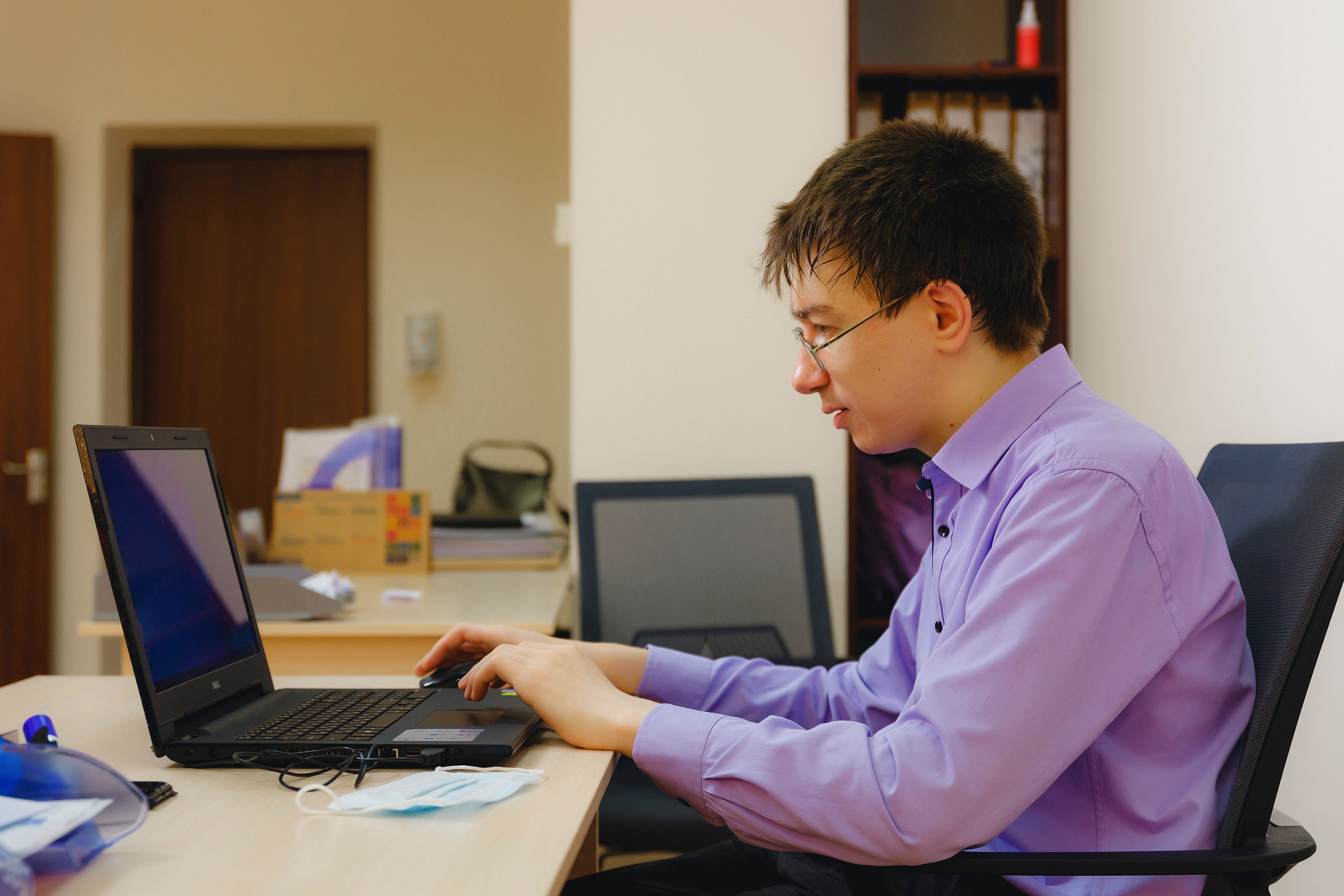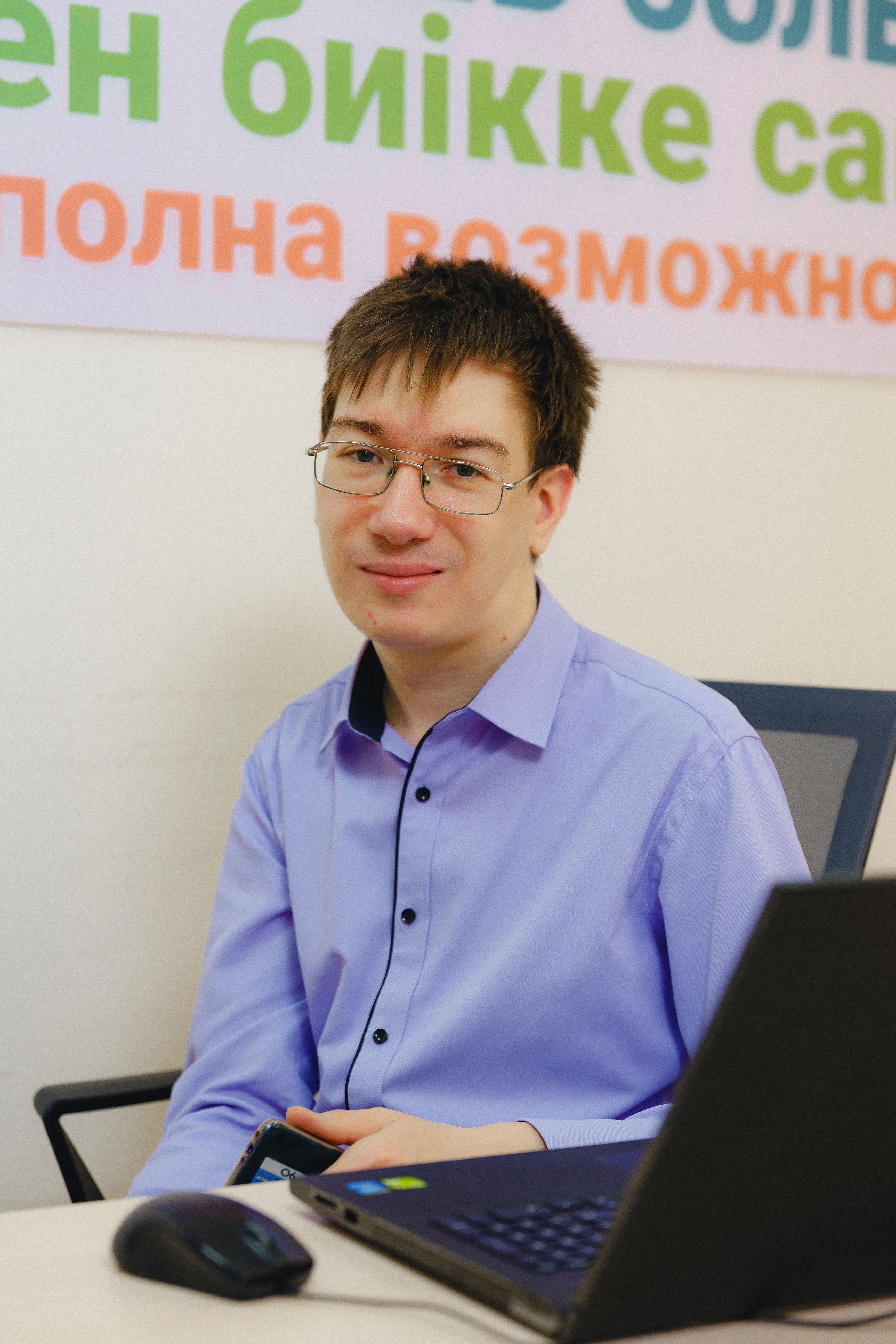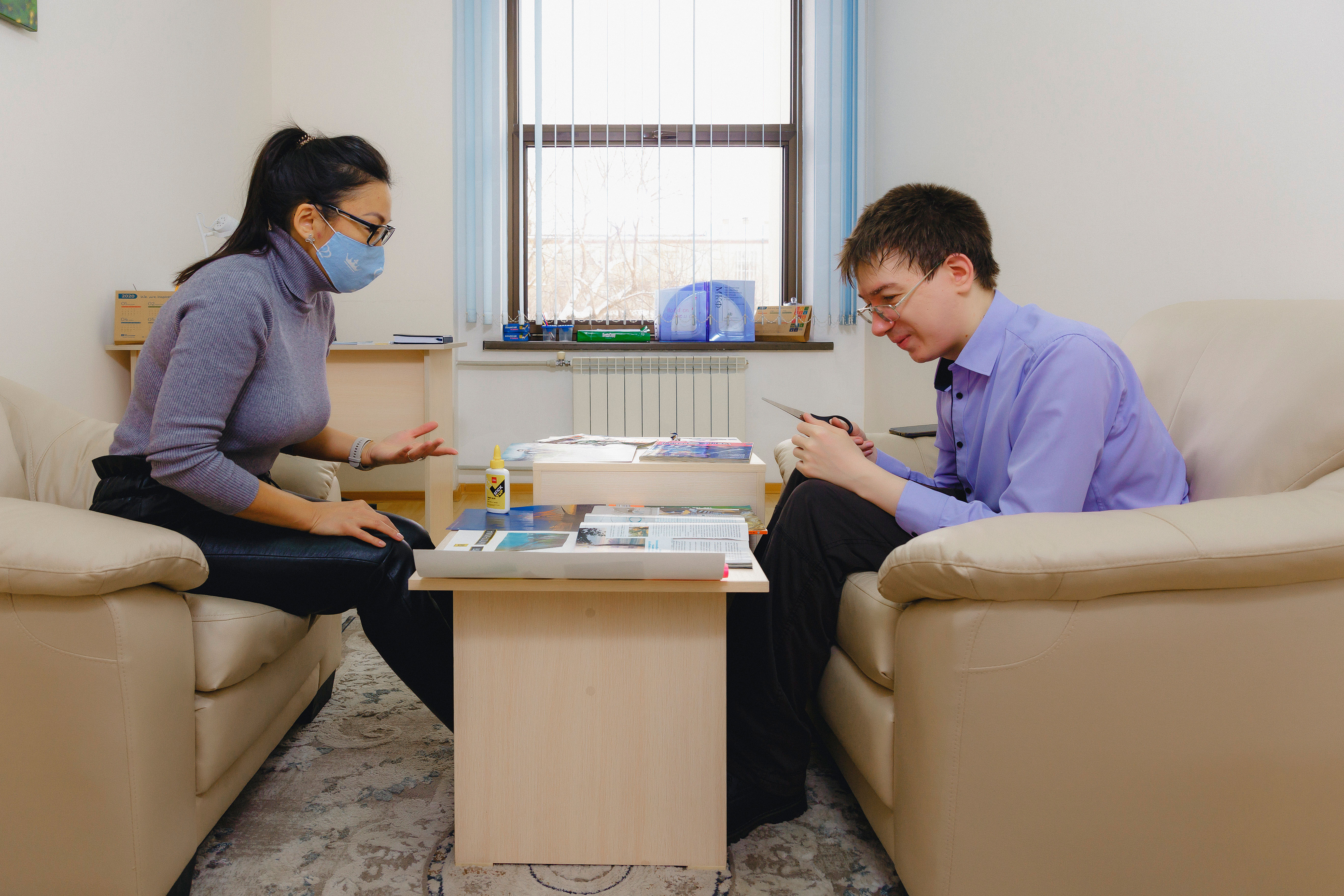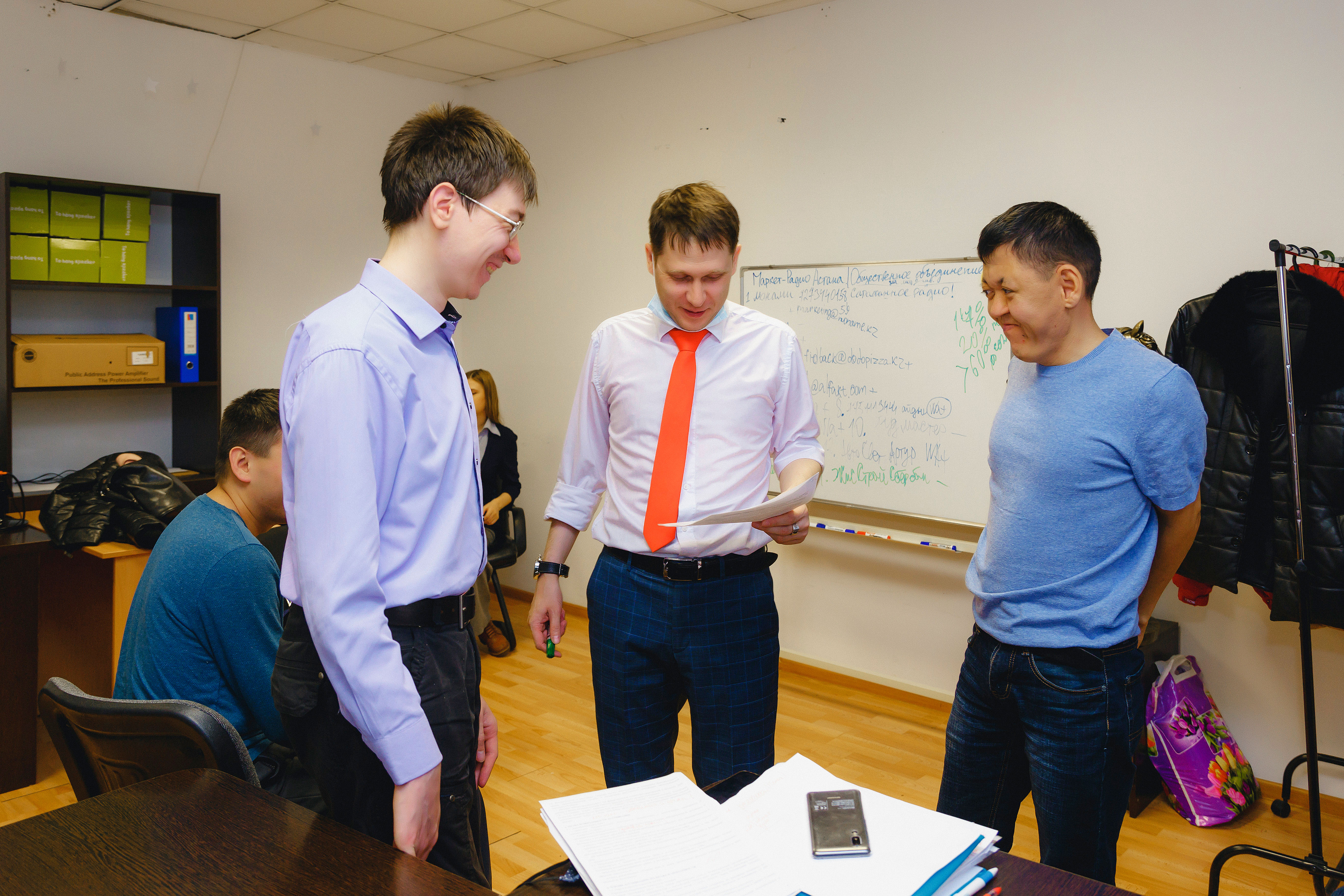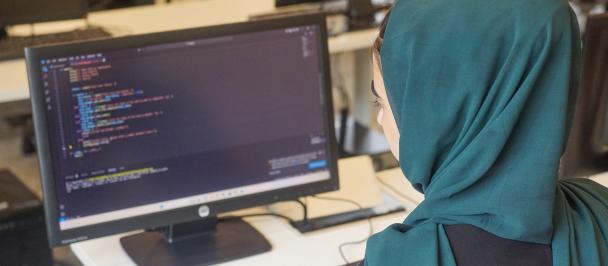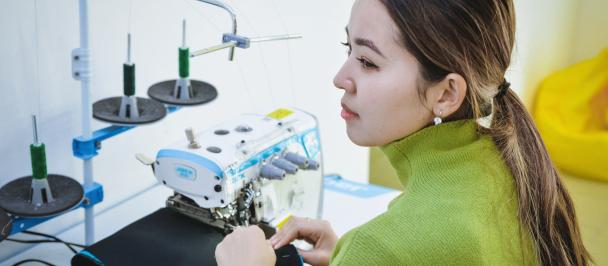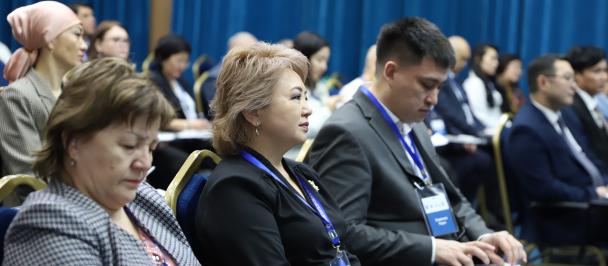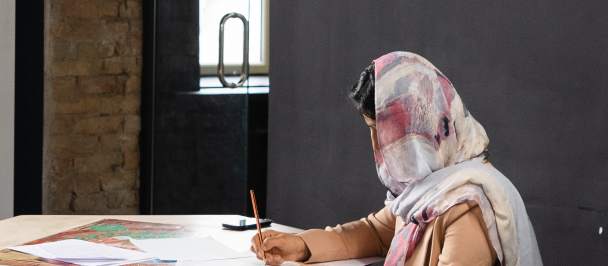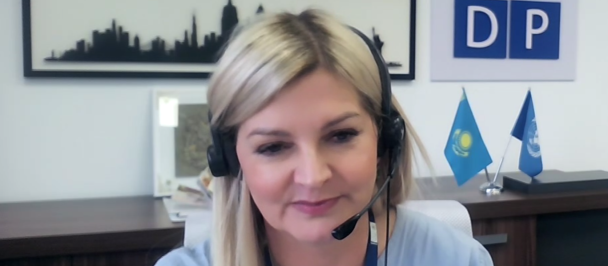To increase the employment rates of persons with disabilities UNDP supported the launch of the Professional Rehabilitation Centre in Nur-Sultan city in April 2020.
There are 430,000 people with disabilities in a productive age in Kazakhstan and only a quarter of them are employed. To address the unemployment, in April 2020, UNDP supported the launch of the Professional Rehabilitation Centre in the city of Nur-Sultan. The centre employs persons with disabilities and provides them with a psychological, legal and career counselling.
Nikita Brusnitsyn, who has cerebral palsy since he was a child, is one of the centre’s applicants.
Following the university graduation, Nikita worked as a translator for five years. Due to high workload and his health condition, Nikita quit and started working remotely.
"My earning as a translator was insufficient so I started looking for a full-time job," says Nikita.
The Centre succeeded in finding him an internship as a marketing specialist in a private company, “Market Radio Astana”.
Nikita Brusnitsyn, one of the Centre’s applicants, started his internship as a marketing specialist.
There is a full-services package offered by the Centre to every job applicant. The Centre’s lawyer examines the offered employment contract to ensure the rights of the applicant are upheld and that salary is paid right from the initial apprenticeship. Once employed, the Centre specialists support the candidate for six months to help them adapt to a new workplace and to develop the requisite professional skills.
Nikita also benefits from free consultations with a psychologist. "I came to the Centre in search of a job, but found a full range of services, including psychological counselling. That was great because I had long wished to attend a session with a qualified psychologist. It is remarkable that the Professional Rehabilitation Centre provides such services gratis, helping applicants overcome psychological barriers and boost their self-esteem,” he says.
On top of it, the Centre provides Nikita with legal services and a career mentor. “The staff here is very friendly and always ready to help. For the initial six months of an employment they help us adapt to a new workplace,” he adds.
At the Center Nikita benefits from consultations with a psychologist.
Nikita points out that employers have never given him a hard time and he has always encountered honest and good people who paid him on time. “Personally, I’ve not met employers who refused to hire me because of my disability. In fact, my disability was never an issue and they were willing to offer me a job, which, to my mind, demonstrates a positive trend in how inclusive the Kazakh society is becoming,” says Nikita.
“What is more important is to do your job well, based on that the employers will evaluate you. Success of any professional depends on their work ethics,” thinks Nikita. He also added that there are certain benefits for persons with disabilities, such as a reduced 36-hour work week.
"I like doing translation, it allows me to expand my horizons, constantly improve and learn interesting things from different fields, but I am also open to new opportunities. Thanks to the Professional Rehabilitation Centre, I am now involved in marketing and hoping to cope with it well,” he smiles.
Supported by the Professional Rehabilitation Centre Nikita is now taking an internship as a marketing specialist in the private company, “Market Radio Astana”.
***
3 December marks the International Day of Persons with Disabilities, an occasion that serves to draw the public’s attention to the problems of persons with disabilities and to promote their full and equal participation in all aspects of society and development.
Building on many decades of UN’s work in the field of disability, the Convention on the Rights of Persons with Disabilities (CRPD), adopted in 2006, has further advanced the rights and well-being of persons with disabilities. Kazakhstan has ratified the Convention in 2015 thanks to the support of the UNDP.
Today over 1 billion people in the world have some form of disability, that’s 1 in every 7 persons. In Kazakhstan, the number is around 700,000.
Evidence and experience show that when barriers to their inclusion are removed and persons with disabilities are empowered to participate fully in social life, their entire community benefits. Barriers faced by persons with disabilities are, therefore, a detriment to society as a whole, and accessibility is necessary to achieve progress and development for all.

 Locations
Locations